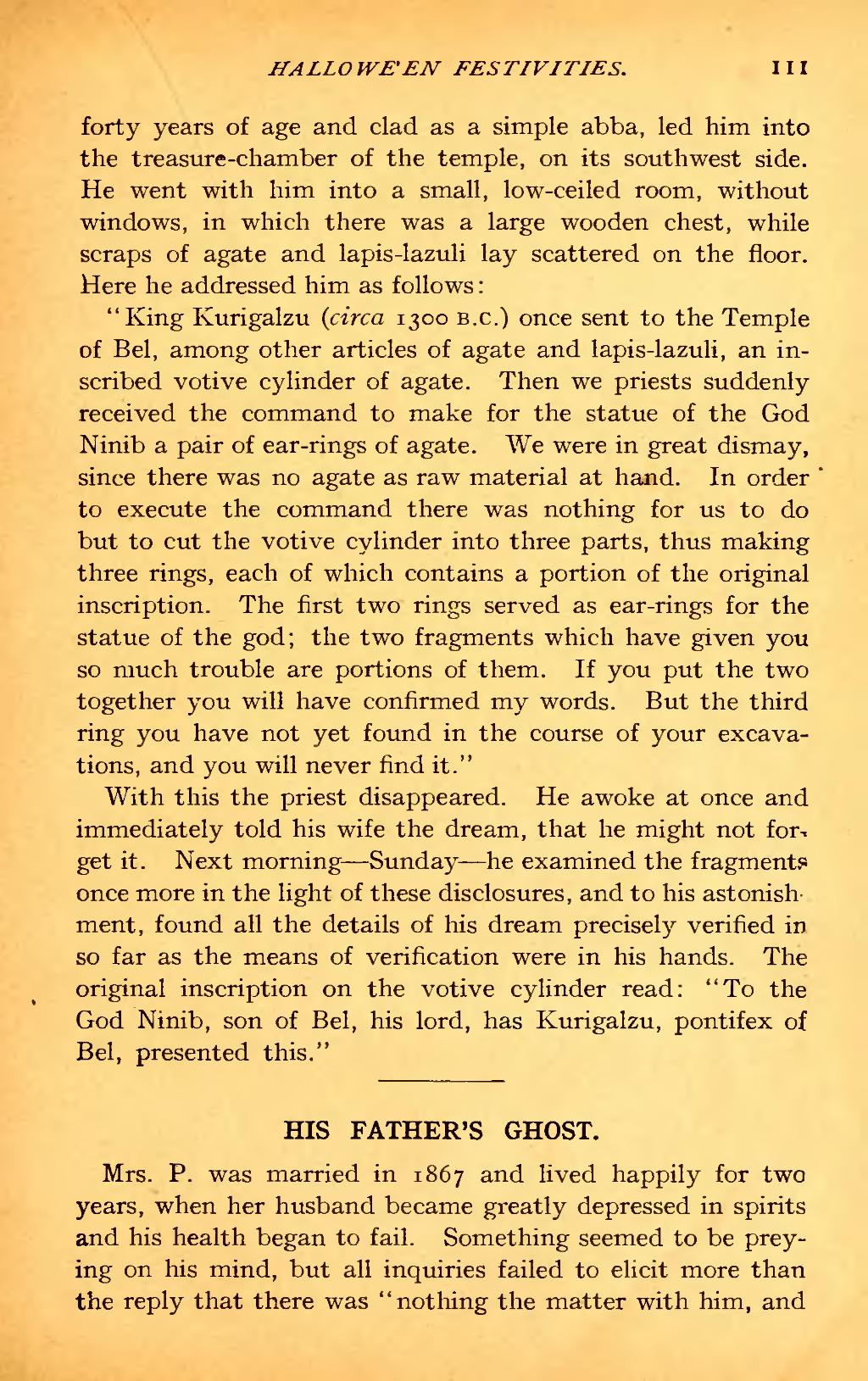forty years of age and clad as a simple abba, led him into the treasure-chamber of the temple, on its southwest side. He went with him into a small, low-ceiled room, without windows, in which there was a large wooden chest, while scraps of agate and lapis-lazuli lay scattered on the floor. Here he addressed him as follows:
"King Kurigalzu (circa 1300 B.C.) once sent to the Temple of Bel, among other articles of agate and lapis-lazuli, an inscribed votive cylinder of agate. Then we priests suddenly received the command to make for the statue of the God Ninib a pair of ear-rings of agate. We were in great dismay, since there was no agate as raw material at hand. In order to execute the command there was nothing for us to do but to cut the votive cylinder into three parts, thus making three rings, each of which contains a portion of the original inscription. The first two rings served as ear-rings for the statue of the god; the two fragments which have given you so much trouble are portions of them. If you put the two together you will have confirmed my words. But the third ring you have not yet found in the course of your excavations, and you will never find it."
With this the priest disappeared. He awoke at once and immediately told his wife the dream, that he might not for-x get it. Next morning—Sunday—he examined the fragment? once more in the light of these disclosures, and to his astonishment, found all the details of his dream precisely verified in so far as the means of verification were in his hands. The original inscription on the votive cylinder read: "To the God Ninib, son of Bel, his lord, has Kurigalzu, pontifex of Bel, presented this."
HIS FATHER'S GHOST.
Mrs. P. was married in 1867 and lived happily for two years, when her husband became greatly depressed in spirits and his health began to fail. Something seemed to be preying on his mind, but all inquiries failed to elicit more than the reply that there was "nothing the matter with him, and
